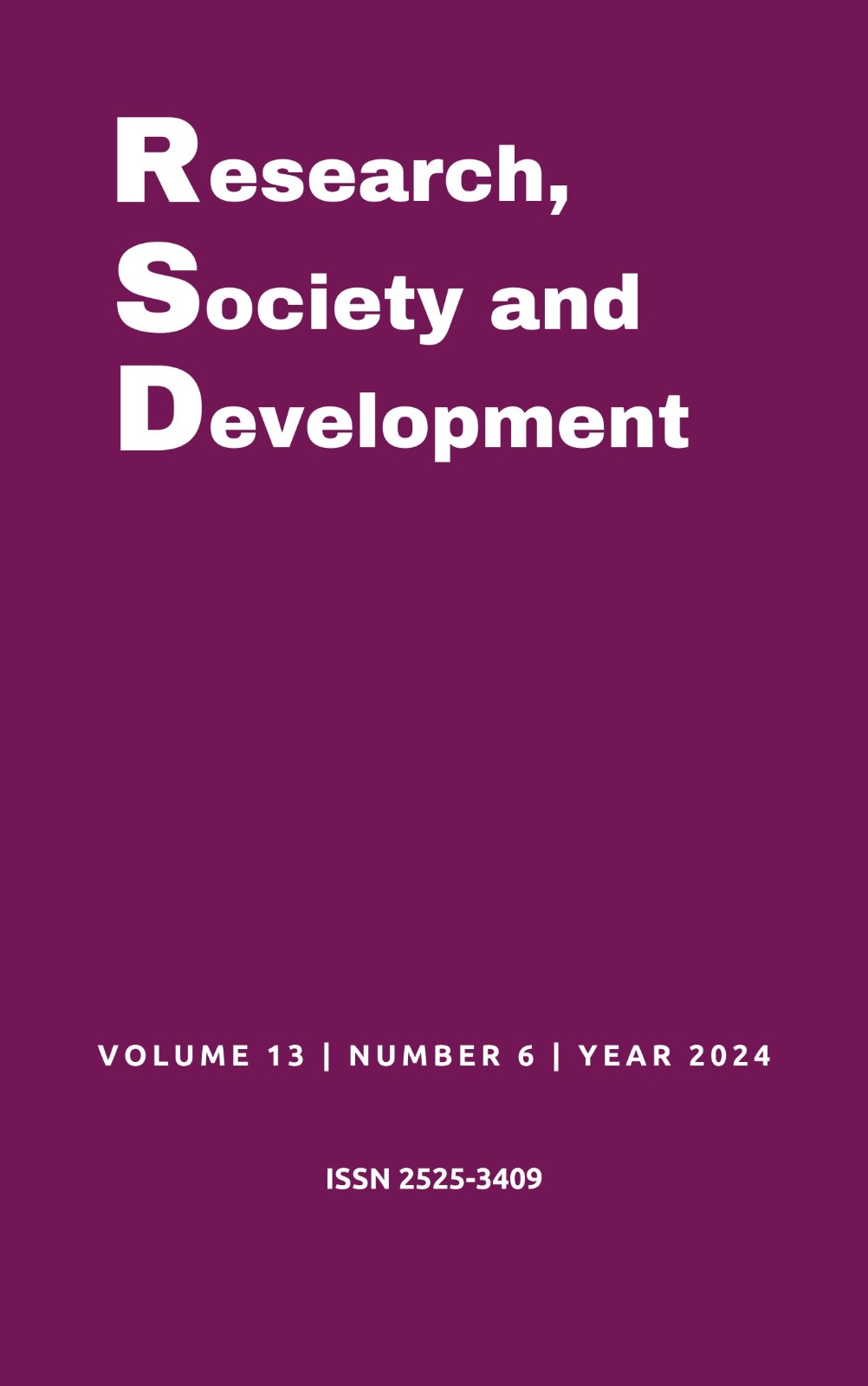The emerging use of Ozempic in the treatment of obesity
DOI:
https://doi.org/10.33448/rsd-v13i6.46063Keywords:
Ozempic®; Semaglutide; Diabetes; Obesity; Sustain; Step.Abstract
The study "The Emerging Use of Ozempic® in Obesity Treatment" analyzes the efficacy and safety of semaglutide (Ozempic®), originally approved for type 2 diabetes, in the treatment of obesity. The objective is to review clinical studies to inform clinical practice about the benefits of the medication for weight loss. The methodology includes the review of studies from the SUSTAIN and STEP programs, which investigated semaglutide in different populations, including people with and without type 2 diabetes. The SUSTAIN studies demonstrated significant reductions in blood glucose and HbA1c levels, along with a favorable safety profile. The STEP program showed that semaglutide resulted in an average weight loss between 14.9% and 17.4% after 68 weeks of treatment. The conclusion highlights that semaglutide not only promotes significant weight loss but also improves health parameters such as glycemic control, prevention of cardiovascular events such as stroke and heart attack in people with cardiovascular diseases, and lipid profile, being a promising option in the management of obesity. Medical supervision is essential, given the need for monitoring side effects and dosage adjustments.
References
Aroda, V. R., et al. (2019). Comparative efficacy, safety, and cardiovascular outcomes with once-weekly subcutaneous semaglutide in the treatment of type 2 diabetes: Insights from the SUSTAIN 1-7 trials.
Aroda, V. R., et al. (2017). Efficacy and safety of once-weekly semaglutide versus once-daily insulin glargine as add-on to metformin (with or without sulfonylureas) in insulin-naive patients with type 2 diabetes (SUSTAIN 4): A randomised, open-label, parallel-group, multicentre, multinational, phase 3a trial. *Lancet Diabetes Endocrinology*.
Blundell, J., et al. (2017). Effects of once-weekly semaglutide on appetite, energy intake, control of eating, food preference and body weight in subjects with obesity.
Davies, M., et al. (2021). Semaglutide 2.4 mg once a week in adults with overweight or obesity, and type 2 diabetes.
Davies, M. J., et al. (2016). Efficacy and safety of liraglutide versus placebo as add-on to glucose-lowering therapy in patients with type 2 diabetes and moderate renal impairment (LIRA-RENAL): A randomized clinical trial.
Davies, M. J., et al. (2021). Semaglutide 2.4 mg once a week in adults with overweight or obesity, and type 2 diabetes (STEP 2): A randomised, double-blind, double-dummy, placebo-controlled, phase 3 trial.
Husain, M., et al. (2019). Semaglutido oral e resultados cardiovasculares em pacientes com diabetes tipo 2.
Marso, S. P., et al. (2016). Semaglutide and cardiovascular outcomes in patients with type 2 diabetes. *New England Journal of Medicine, 375*(19), 1834-1844.
O'Neil, P. M., et al. (2019). Efficacy and safety of semaglutide compared with liraglutide and placebo for weight loss in patients with obesity: A randomised, double-blind, placebo and active controlled, dose-ranging, phase 2 trial.
Pratley, R. E., et al. (2018). Semaglutide versus dulaglutide once weekly in patients with type 2 diabetes (SUSTAIN 7): A randomised, open-label, phase 3b trial. *Lancet Diabetes Endocrinology*.
Rodbard, H. W., et al. (2018). Semaglutide added to basal insulin in type 2 diabetes (SUSTAIN 5): A randomized, controlled trial.
Rubino, D., et al. (2021). Effect of continued weekly subcutaneous semaglutide vs placebo on weight loss maintenance in adults with overweight or obesity: The STEP 4 randomized clinical trial.
Smith, J., et al. (2020). Pharmacokinetics and tolerability of semaglutide once-weekly in subjects with type 2 diabetes: A randomized, double-blind, placebo-controlled trial.
Snyder, H. (2019). Literature review as a research methodology: An overview and guidelines. Journal of Business Research, 104, 333-339. doi:10.1016/j.jbusres.2019.07.039
Vanita, R. A., et al. (2019). Semaglutide once weekly as add-on to SGLT-2 inhibitor therapy in type 2 diabetes (SUSTAIN 9): A randomised, placebo-controlled trial. *Lancet Diabetes Endocrinology*.
Wadden, T. A., et al. (2021). Effect of weekly semaglutide vs placebo as an adjunct to intensive behavioral therapy on body weight in adults with overweight or obesity.
Wadden, T. A., et al. (2021). Effect of subcutaneous semaglutide vs placebo as an adjunct to intensive behavioral therapy on body weight in adults with overweight or obesity: The STEP 3 randomized clinical trial.
Wilding, J. P. H., et al. (2021). Once-weekly semaglutide in adults with overweight or obesity.
Zinman, B., et al. (2019). Semaglutide once weekly as add-on to SGLT-2 inhibitor therapy in type 2 diabetes (SUSTAIN 9): A randomised, placebo-controlled trial. *Lancet Diabetes Endocrinology*.
Downloads
Published
How to Cite
Issue
Section
License
Copyright (c) 2024 Evelyn de Oliveira de Maria; Loren Stefani Santos Pereira; Miriã da Silva Felacio; Remaz Sameh Ibrahim Shillo

This work is licensed under a Creative Commons Attribution 4.0 International License.
Authors who publish with this journal agree to the following terms:
1) Authors retain copyright and grant the journal right of first publication with the work simultaneously licensed under a Creative Commons Attribution License that allows others to share the work with an acknowledgement of the work's authorship and initial publication in this journal.
2) Authors are able to enter into separate, additional contractual arrangements for the non-exclusive distribution of the journal's published version of the work (e.g., post it to an institutional repository or publish it in a book), with an acknowledgement of its initial publication in this journal.
3) Authors are permitted and encouraged to post their work online (e.g., in institutional repositories or on their website) prior to and during the submission process, as it can lead to productive exchanges, as well as earlier and greater citation of published work.

